Discovering Artisanal U.S. Cheeses
by Peter Knipp
@ 13 Jul 2018
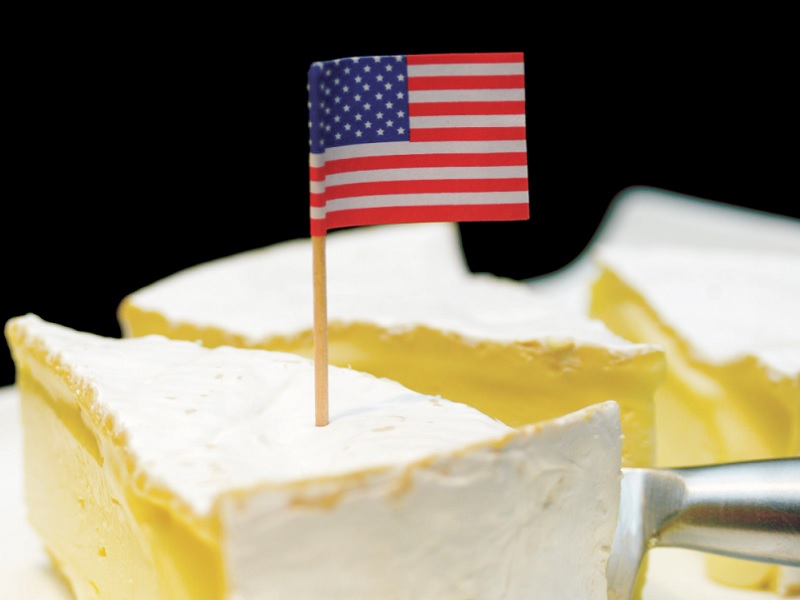
I remember a conversation about U.S. cheeses with an Italian chef, who insisted on using Parmesan cheeses from his own land. I told him, “By the way, the Italian parmesan that won the world’s best parmesan, made in America, is done by an Italian cheesemaker, who just happened to be in the U.S.” Finally, he relented, and gave it a try. Now, he has a permanent order for U.S. parmesan.
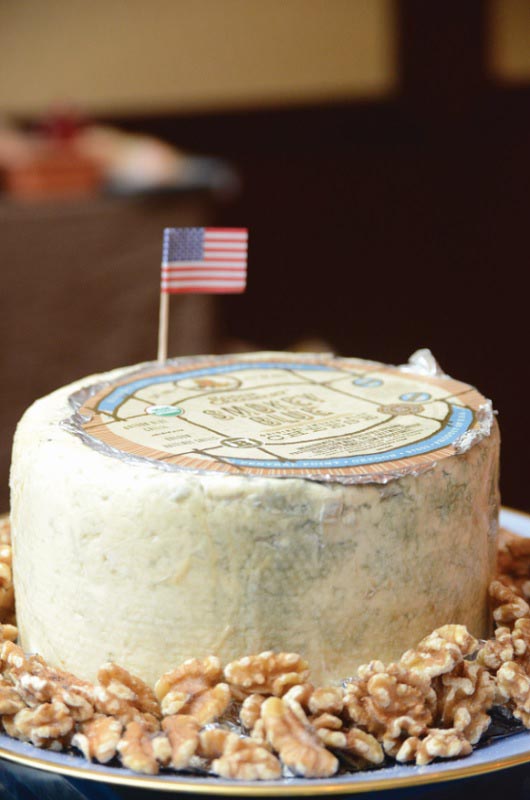
smokey blue from Rogue Creamery (Oregon)
2nd place, smoked soft & semi-soft cheeses
2016 World Championship Cheese Contest
On another occasion, it was an Austrian chef I spoke with. “Cheese from America is all chemical, all genetically modified,” he said, and that shows the small mindset that sometimes exists – perception, versus reality. Today, he realises that the cheesemakers in the States are immigrants who brought their craft over, and many a time, perfected it. To get U.S. cheese to be accepted, it takes more than just medals. It takes changing people’s mindsets. The road to ultimate acceptance may be long, but we’ve started and we already have quite a few success. Let’s have Deputy Chief of Mission Stephanie Syptak-Ramnath from the Embassy of the United States of America share with us more.
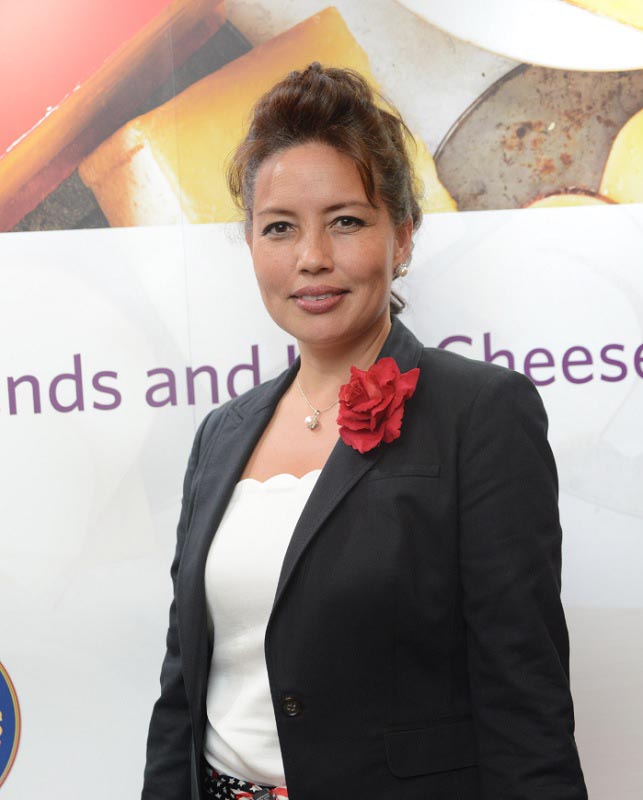
Stephanie Syptak-Ramnath
“It’s a privilege to say, with no small degree of pride, the United States is on the cutting edge of innovation and creativity when it comes to producing some of the world’s finest cheese. The United States is the largest producer of cheeses in the world. In 2016 World Championship cheese contest, expert judges critiqued nearly 3,000 cheeses from 20 different countries. United States outperformed traditional cheese-producing countries such as France, Italy, Switzerland, and New Zealand, and accounted for nearly 75 percent of the total medals that year. I’d like to think of this as a cheese Olympics, and I can’t think of a better place than Singapore and the World Gourmet Summit for showcasing United States’ top cheeses. This is a country defined by world-class cuisine. And everyone, from its top restaurateurs, to your average man and woman on the street, takes enormous care and interest in choosing the finest ingredients to create the most memorable dishes in the world. Within America, the state of Wisconsin has been a top performing cheese-making state for more than a century, producing more than 1.3 million tonnes of cheese each year. California is second to Wisconsin, producing more than 1.1 tonnes, and the great state of Oregon is home to 228 dairy farms that have been family-owned and operated for multiple generations. New York, Minnesota, New Mexico, and Idaho also contribute to my country’s output of cheese. Charles de Gaulle once famously asked, “How can you govern a country which has 246 kinds of cheese?” Well, my country now has 600 kinds of cheese. So I will have to respond, on behalf of my government, “One bite at a time”. I look forward to taking many of those bites with you, and as I’m sure you’ll agree, that United States cheese is more delightful, innovative, and delicious than you can ever imagine.”
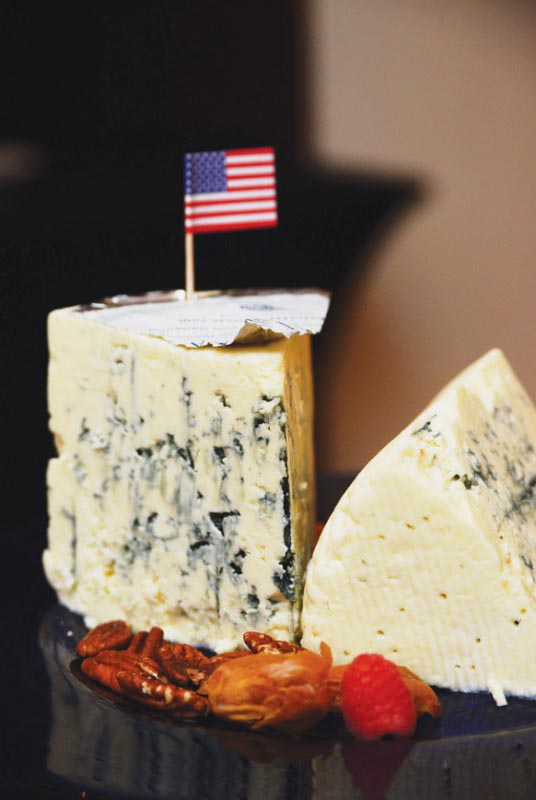
original blue from Point Reyes Farmstead Cheese (California)
Chef Mark Todd, the Cheese Dude from California, shares his insights from 26 years of promoting U.S. cheese. “I first got interested in cheese when I saw a friend carve Mount Rushmore, with the four presidents’ faces on it, out of cheese. The thing that I have trouble getting people to understand is that the United States makes more than just pasteurised, processed cheese. They don’t taste and see the hundreds of artisan cheeses that we produce, that have beaten almost every country at their best cheese. We also make hundreds of original cheeses that no one else in the world makes. Europe has wonderful traditions, but they are also restricted by those traditions. In America, if we want to make a cheese that is different from currently made, we just do it, for example, no one else in the world made a smoked blue cheese until we did. That’s one of the things that has allowed the United States to make the most varieties of anybody else in the world.”
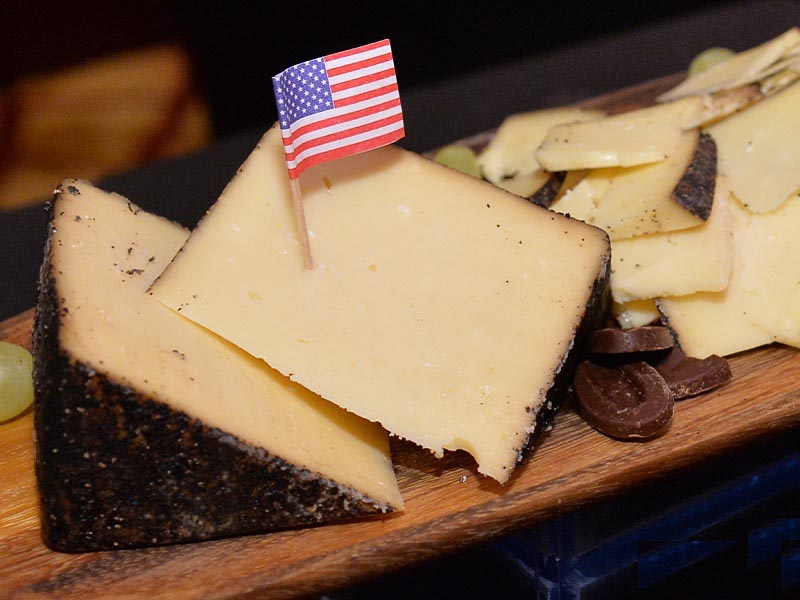
espresso bellavitano
best of class: 2018 World Championship Cheese Contest
The coffee and lavender flavoured cheese from Beehive Cheese received an overwhelming response from everyone who tried it. Cheesemaker Britton Welsh shares with us more. “As a family, we have always loved food and travelling, and spend quite a bit of time in Europe.” The local cheeses sold at local European markets caught their attention, and they wanted to bring it back home. So in 2005, they started Beehive Cheese. “Our idea has been to fuse together old-world techniques that have been developed for hundreds of years with new world ideas to create a great product.” One of his uncles is a coffee roaster, so they always had coffee beans around the house. One day, Welsh’s dad, Tim, left some coffee beans on a five-pound cheese wheel with some lavender, and forgot about it. “We had dairy scientists try our coffee lavender cheese and at first they were like, ‘You can’t do that,’ but then they tasted it, and the rest is history.” Another unique creation is a cheese wheel hand-rubbed in sea salt and honey, a nod to the Salt Lake Valley and the mountains of Utah where their cows graze, and his family is based in.
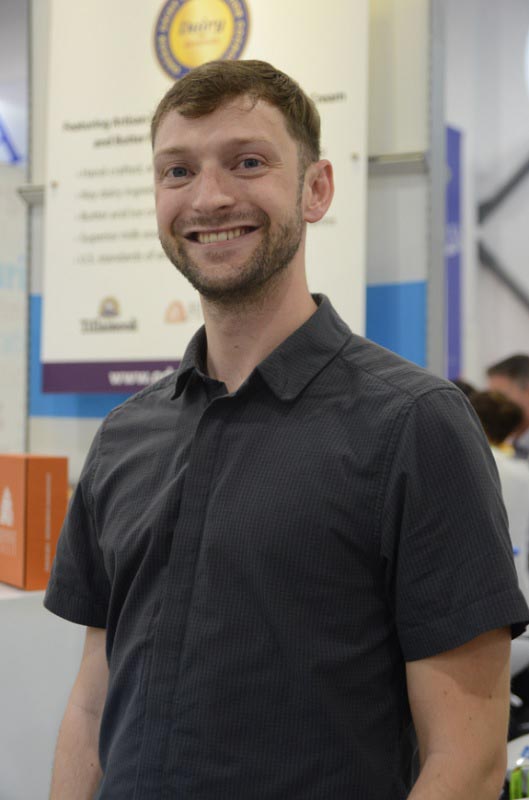
Britton Welsh
Today, people are realising that, much like Australian wines, that 25, 30 years ago were known to be served in 2.5 litre plastic bottles, U.S. cheese is more than just processed cheddar. It’s become a craft that is starting to become a staple on many a fine dining table. We, through the World Gourmet Summit, have invited the most number of Michelin chefs, James Beard chefs from all over the world to Singapore for the past 22 years, and know just too well what it takes to gain acceptance by the industry. Together with food and beverage opinion leaders, we look forward to discovering many more of these artisanal cheeses from the United States in the days to come.
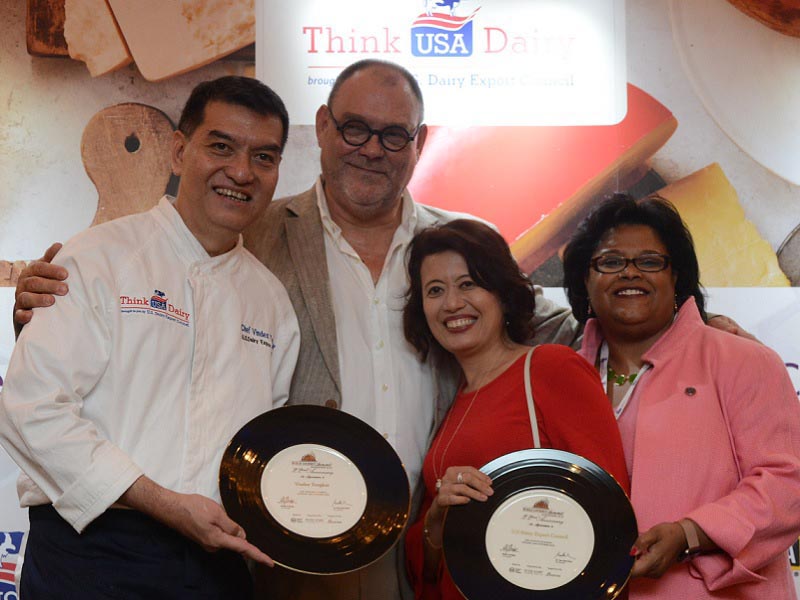
(from left) Chef Vindex Tengker, Peter A. Knipp, Dalilah Ghazalay & Vikki Nicholson-West
For more information, contact the USDEC Southeast Asia office at
info@dairyconnect.biz or visit
ThinkUSADairy.org.
Adapted from the
May Jun 18 issue of Cuisine & Wine Asia.
 I remember a conversation about U.S. cheeses with an Italian chef, who insisted on using Parmesan cheeses from his own land. I told him, “By the way, the Italian parmesan that won the world’s best parmesan, made in America, is done by an Italian cheesemaker, who just happened to be in the U.S.” Finally, he relented, and gave it a try. Now, he has a permanent order for U.S. parmesan.
I remember a conversation about U.S. cheeses with an Italian chef, who insisted on using Parmesan cheeses from his own land. I told him, “By the way, the Italian parmesan that won the world’s best parmesan, made in America, is done by an Italian cheesemaker, who just happened to be in the U.S.” Finally, he relented, and gave it a try. Now, he has a permanent order for U.S. parmesan.




